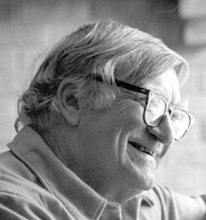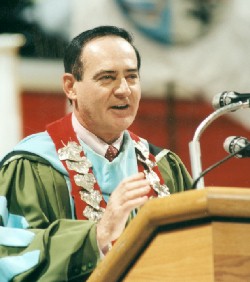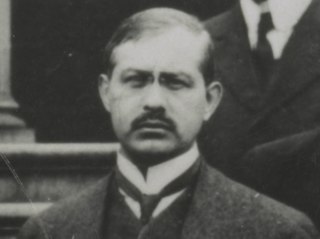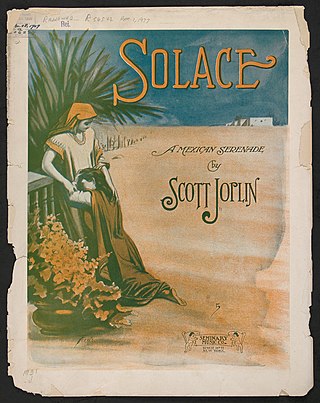Related Research Articles

Dorris Alexander "Dee" Brown was an American novelist, historian, and librarian. His most famous work, Bury My Heart at Wounded Knee (1970), details the history of the United States' westward colonization of the continent between 1830 and 1890 from the point of view of Native Americans.

Louis Moreau Gottschalk was an American composer, pianist, and virtuoso performer of his own romantic piano works. He spent most of his working career outside the United States.

The Tulane University School of Medicine is the medical school of Tulane University, a private research university in New Orleans, Louisiana. The school is located in the Medical District of the New Orleans Central Business District.

María Teresa Gertrudis de Jesús Carreño García was a Venezuelan pianist, soprano, composer, and conductor. Over the course of her 54-year concert career, she became an internationally renowned virtuoso pianist and was often referred to as the "Valkyrie of the Piano". Carreño was an early adopter of the works of one of her students, American composer and pianist Edward MacDowell (1860–1908) and premiered several of his compositions across the globe. She also frequently performed the works of Norwegian composer and pianist Edvard Grieg (1843–1907). Carreño composed approximately 75 works for solo piano, voice and piano, choir and orchestra, and instrumental ensemble. Several composers dedicated their compositions to Carreño, including Amy Beach and Edward MacDowell.

Francis Leo Lawrence was an American educator and scholar specializing in French literature and university administrator. A graduate of Saint Louis University and Tulane University, Lawrence taught at Tulane for over 30 years and held posts as academic vice president, provost, and dean of the graduate school before being appointed as the 18th president of Rutgers University (1990–2002).

Guido Adler was a Bohemian-Austrian musicologist and writer.

Elonnie J. Josey was an African-American activist and librarian. Josey was the first chair of the Black Caucus of the American Library Association, having been instrumental in its formation in 1970; served as president of the American Library Association from 1984 to 1985; and was the author of over 400 books and other publications.

The term Creole music is used to describe both the early folk or roots music traditions of rural Creoles of Louisiana.

Oscar George Theodore Sonneck was a U.S. librarian, editor, and musicologist.

John Sullivan Dwight was an American classical music critic, transcendentalist, school director, and minister. He is considered America's first influential music critic.

Gerard Henri Béhague was an eminent Franco-American ethnomusicologist and professor of Latin American music. His specialty was the music of Brazil and the Andean countries and the influence of West Africa on the music of the Caribbean and South America, especially candomblé music. His lifelong work earned him recognition as the leading scholar of Latin American ethnomusicology.

Otto Kinkeldey was an American music librarian and musicologist. He was the first president of the American Musicological Society and held the first chair in musicology at any American university.

Jeanne Behrend was an American pianist, music educator, musicologist and composer.
Bamboula, Op. 2, is a fantasy composition for piano written by American composer Louis Moreau Gottschalk during a delirium of typhoid fever in the French town of Clermont-sur-l'Oise in the summer of 1848. Dedicated "à sa Majesté Isabelle II, Reine des Espagnes", it is the first of the so-called set of four "Louisiana Creole pieces" that Gottschalk composed between 1848 and 1851.

"Solace" is a 1909 habanera written by Scott Joplin.
Neil Mixon Ratliff, was an American music librarian, and, until his death, served as Head of the Music Library at the University of Maryland, College Park, which included oversight of the International Piano Archives at Maryland.
Susan Thiemann Sommer was a music librarian with a 40-year career at the New York Public Library, teacher, editor, and noted music critic for the magazine High Fidelity.

Lady Mary Alice Seymour was a 19th-century American musician, author, elocutionist, and critic. She was referred to as "Octavia Hensel" in the music world, where she was an internationally known music critic. As a critic, Seymour was renowned. Her musical nature, her superior education, her thorough knowledge of the laws of theory and familiarity with the works of the great composers of the classic, romantic and Wagnerian schools, and the later schools of harmony, gave her a point of vantage above the ordinary. She was one of the original staff writers on the Musical Courier, having been its correspondent from Vienna and other European centers. Seymour played the piano, harp, guitar and organ, but never appeared on the stage, except for charitable events, as her relatives were opposed to her pursuing a professional life. A "confirmed bluestocking", Seymour was also a polyglot who spoke seven languages fluently: German, French, Spanish, Italian, Portuguese, Romanian, and Hungarian dialects. She died in 1897.
Fritz Eberhardt Klemm was a German musicologist and journalist. He was one of the leading Hanns Eisler experts of the GDR.

Clara Gottschalk Peterson (1837–1910) was an American pianist, composer, and editor. She was the sister of virtuoso pianist Louis Moreau Gottschalk, editing a collection of his writings and working to preserve his memory after his death. She is remembered as "a staunch protector of her brother's music in its original form", as well as "a composer of considerable ability" in her own right.
References
- 1 2 3 4 Paula Morgan (2001). "Jackson, Richard (Hammel)". Grove Music Online . Oxford Music Online. Oxford University Press. doi:10.1093/gmo/9781561592630.article.47105.